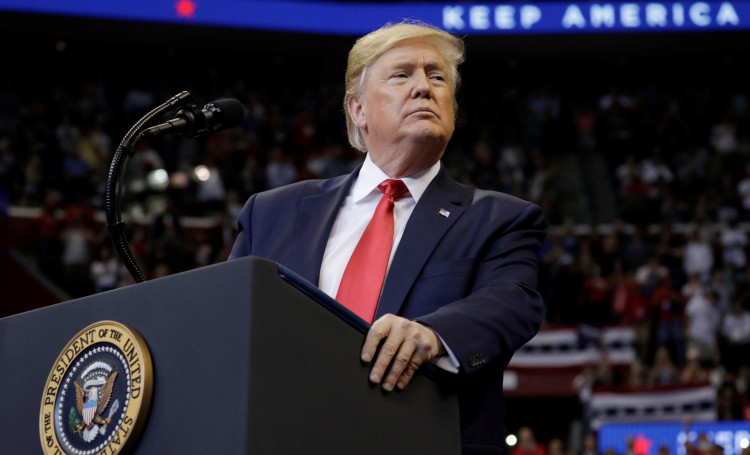President Donald Trump on Tuesday re-ignited his simmering feud with the United States Armed Forces by labeling it a part of the "Deep State" bent on ousting him. On Thursday, Trump sought to soothe the growing anger among U.S. generals caused by this remark with a surprise one-day visit to U.S. troops in Afghanistan that was more of a public relations gimmick that achieved nothing policy-wise.
In the United States, the "Deep State" is a conspiracy theory among right-wingers which suggest a group of people, typically influential members of the federal government and the military, are secretly manipulating and controlling government policy. To conservatives like Trump, the Deep State is essentially a "hidden government" out to destroy them.
The surprise Afghanistan visit on Thursday, which is Thanksgiving Day in the U.S., came after Trump's controversial decision earlier this month to repudiate the U.S. military leaders and intervene in the cases of three service members facing war crimes allegations. Trump's unwarranted intervention led to the firing of Secretary of the Navy Richard Spencer, who later criticized Trump for meddling in a purely military justice case he knew nothing about.
Trump told a campaign rally at Sunrise, Florida on Tuesday he defended these soldiers against the Pentagon, which he said is a "Deep State."
"I stuck up for three great warriors against the Deep State," said Trump, linking the U.S. military to his belief in a Deep State operating against him for the first time. "And you know what I'm talking about. I had so many people say, 'Sir, don't think you should do that.'"
Trump's branding the U.S. military part of the Deep State outraged senior officers. Some Washington political analysts believe Trump's sudden trip to Afghanistan was a hasty attempt by Trump to calm military anger and had nothing to do with Trump announcing peace talks with the Taliban had restarted. The Taliban has so far refused to comment on Trump's unilateral claim they had again agreed to end Afghanistan War.
Spencer is the highest-ranking casualty in a pitting Trump and his disregard of the military justice system against the Department of Defense seeking to fairly impose its Uniform Code of Military Justice governing war crimes committed by U.S. servicemen anywhere in the world.
Trump claims his clemency of the three accused soldiers will give U.S. troops "the confidence to fight" without worrying about being charged for war crimes later on.
Convicted by a military court was Army 1st Lt. Clint Lorance, who was found guilty of second-degree murder in the death of two Afghans. Army Maj. Mathew Golsteyn was to have faced murder charges in 2020 for a similar crime. Special Warfare Operator Chief Edward Gallagher was accused of a number of war crimes.
In his clemency on Memorial Day, Trump granted Lorance a full pardon for his crimes; Golsteyn was given a similar full pardon while Gallagher had his rank restored to Chief Petty Officer in the U.S. Navy. Gallagher is a SEAL operator.
The Pentagon protested the pardons. It said Trump's clemency will send the wrong message U.S. troops need not worry about following rules of engagement when fighting enemies abroad. Trump's pardon of these soldiers and the U.S. military's failure to investigate and prosecute war crimes are a violation of international humanitarian law, said the United Nations.






